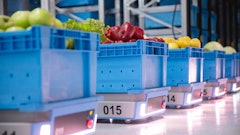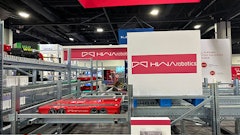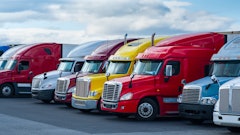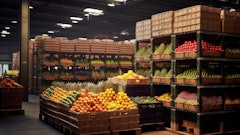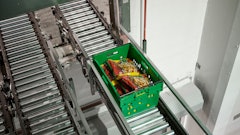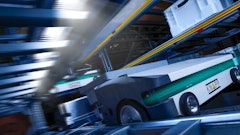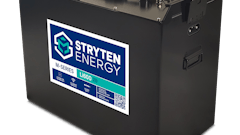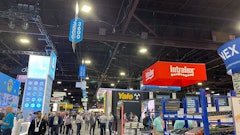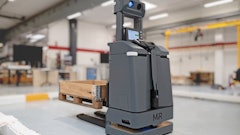VITAL STATS
Located in California’s fertile, heavily--traveled San Joaquin Valley.
Population: 862,600
Land Area: 6,000 square miles
Farm Facts: The number one agricultural county in the United States, Fresno’s 7,500 farmers harvest 250 crops on 1 million acres. The total annual gross revenue from crop production tops $3 billion.
Take A Hike: Fresno is a one and a half hour drive from three national parks––Yosemite, Sequoia and Kings Canyon.
Fresno, CA, ranks among the nation’s top areas for food companies, says David Spaur, president and CEO of Fresno County Economic Development Corp.
Fresno County is located in the fertile and highly productive San Joaquin Valley. Centrally located between San Francisco and Los Angeles, Fresno is within a day’s drive to every California market via I--5 and State Highway 99—as well as to Mexican and Canadian markets.
About 65 percent of all agricultural products grown in Fresno County are shipped to market by truck, using Route 99, which could soon be upgraded to interstate status because of the heavy trailer truck traffic it carries.
Although known worldwide for its bountiful agricultural output, Fresno County’s real story is its logistics and distribution network that keeps products moving throughout the country and even the world. More than 500 trucking and warehousing firms operate in the area, and two Class 1 railways (the Burlington Northern and Santa Fe (BNSF) and the Union Pacific (UP), operate intermodal facilities. Agriculture is a $4.1 billion industry in the area, up significantly from $3.4 billion last year.
"We are the largest producer with the most diverse agricultural commodities in the country," Spaur says.
The San Joaquin Valley Railroad is the local short line that switches between growers, processors and the BNSF and UP. "They are really that missing farm--to--market link," Spaur says. And State Highway 180 is an extremely vital roadway in the region’s transportation and distribution network, as it provides the connecting road linking the region to I--5 and State Highway 99.
Numerous warehousing facilities operate in the area, ranging from 100,000 square feet to 1 million square feet, with more than 5 million square feet of warehousing space already occupied. About 75 percent of the warehouses use truck; warehouses using rail are served by rail spurs. Spaur says about 500,00 square feet of warehousing space is available now, with another 500,000 square feet proposed for new construction.
The region boasts 15 industrial parks, with more than half of these either located on rail or accessible by drill track, which typically switches off a main track and goes to only one user.
Fresno County’s water is among the highest quality in California. "This is very attractive to food processing companies," Spaur says. "We have one of the largest water supplies in the state, originating from Sierra Nevada snow melt and we have five reservoirs. We also have two of the largest water canal projects running through our county."
Spaur says the county has excess sewage capacity, as the county recently invested in major renovations to improve its sewage treatment facility.
Perhaps one drawback to the area’s other assets is its industrial electric rates, which are quite high. "The high cost of power makes it a bit difficult on our growers and processors--particularly for cold storage facilities," Spaur says.
The available business, tax and workforce incentives at the federal and state levels are quite generous and numerous. State Enterprise Zones provide employee tax credits as well as credits on the purchase of equipment operated in these zones. Federal Empowerment Zones offer similar credits, as well as new market tax credits. "This is a financing mechanism which can be as high as $136 million per project––so it’s quite an advantage for a capital--intensive plan," Spaur says.
Hub Zones assist businesses with low--interest rates in exporting and importing operations and Recycling Marketing Development Zones offer low--interest loans and financing for plant equipment, facility maintenance or expansion for companies that recycle 51 percent or more or their waste.
California is big on developing its workforce. "We have one of the largest workforce investment programs in the country, with a $35 million budget, providing job screening, hiring and training––with special incentives in all three of these categories," notes Spaur.
The food industry regularly works closely with the Department of Viticulture and Enology at California State University at Fresno, providing a resource to area wineries. For more than 40 years, the department and its resource center has been a resource to regional wineries on the art and science of grape--growing and wine--making.
It’s not all work and no play in Fresno County, which is rich with cultural activities such as symphonies, museums and galleries, and outdoor activities such as white--water rafting, fly fishing, mountain biking and road racing.
"Plus, we have three national parks: Yosemite, Kings Canyon and Sequoia," Spaur says.
-------------------------------------
Johanson Transportation
Perishable Business Strong In The Valley
There’s a good reason why Johanson Transportation Service is located in Fresno. "We are right in the center of the richest agricultural region of the San Joaquin Valley," says Larry Johanson, president.
"This is where the food business is strong and there’s a wide variety of crops grown right here and shipped out of this valley. We have available space for development, excellent climate and good soil," he says, adding that last year the company shipped out 16,000 truckloads of products.
Johanson Transportation is a non--asset--based service company handling the transportation piece of getting products shipped from growers to final destination.
"We contract with carriers to do the hauling and we negotiate freight rates on behalf of our customers," explains Johanson. "We then invoice our customers or receivers for freight charges, and then we pay the carrier. So we handle all logistical functions from the time an order is given to us until the time the order is delivered and the carrier is paid."
In addition to handling produce, Johanson Transportation also ships dehydrated vegetables, herbs and fruits to food processors for further processing. "What our shippers find appealing is that we can be a one--stop shop for them because we can do everything from temperature control, dry freight, truckloads and LTLs––all the way down to a pallet or two."
Johanson notes that, with today’s technology it’s not as important as it was in the past for companies to be close to the source of the products they are shipping. "But we see Fresno as a true logistical hub, so we will continue to grow and operate our business here," he says.
The company has grown, doubling in size over the last six years. Johanson Transportation is preparing to move into a new 11,000--square--foot facility. Johanson notes that by locating this facility in an Enterprise Zone, the company can take advantage of tax deductions and other available tax credits that help the business thrive. "I would encourage all companies contemplating moves here to look into the business and workforce incentives offered by locating in an Enterprise Zone," he says.
A local Regional Jobs Initiative offers incentives to companies that create jobs for the region, whether they are existing companies or companies considering the move to Fresno. "We have grown right along Fresno as it has matured in this industry and we recognize the opportunity to partner with our shipper friends to handle their logistics needs," Johanson says.





